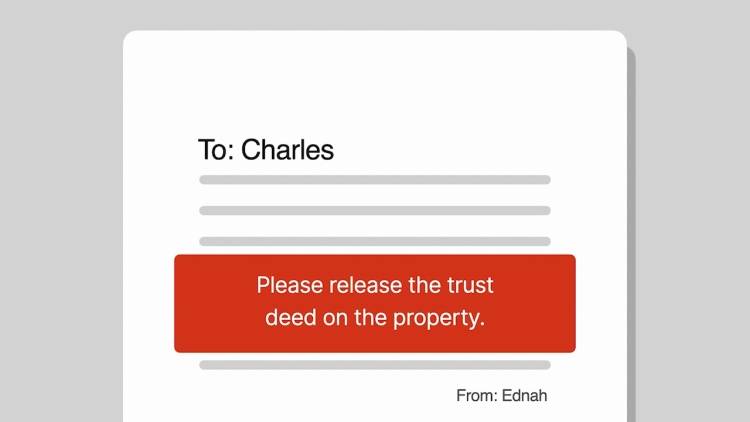Burr v. Beckler
Illinois Supreme Court
264 111. 230, 106 N.E. 206 (1914)
- Written by Craig Conway, LLM
Facts
Ednah Beckler (defendant) was traveling in Florida when she received a request from her husband, Charles Tobey (defendant). At the time, Tobey and Beckler lived in Chicago. Tobey needed money to pay down an overdrawn account. He intended to borrow the funds from his grandmother’s estate, of which he was the trustee. To do so, he asked Beckler to execute a note promising to repay the borrowed funds, meaning the loan was in Beckler’s name. He also asked her to join him in executing a trust deed on certain Chicago real property, placing the property in trust as security for the loan’s repayment. After Beckler and Tobey divorced, Beckler asked Tobey, as trustee of the creditor estate, to release the trust deed. Instead, he assigned the note and trust deed to Shelton Burr (plaintiff), his business associate. When payments on the note were not made, Burr sued Beckler, Tobey, and William Church (defendant), the trustee of the property, to foreclose on the trust deed. Beckler responded in part that the note was executed in Florida, where she lacked the capacity under the state’s coverture law to execute the note and trust deed. The trial court agreed and dismissed the complaint. Burr appealed. The appellate court reversed, concluding that Illinois law governed the note and trust deed because the concerned real property was located in Illinois. The Illinois Supreme Court granted review.
Rule of Law
Issue
Holding and Reasoning (Cartwright, C.J.)
What to do next…
Here's why 899,000 law students have relied on our case briefs:
- Written by law professors and practitioners, not other law students. 47,000 briefs, keyed to 994 casebooks. Top-notch customer support.
- The right amount of information, includes the facts, issues, rule of law, holding and reasoning, and any concurrences and dissents.
- Access in your classes, works on your mobile and tablet. Massive library of related video lessons and high quality multiple-choice questions.
- Easy to use, uniform format for every case brief. Written in plain English, not in legalese. Our briefs summarize and simplify; they don’t just repeat the court’s language.





